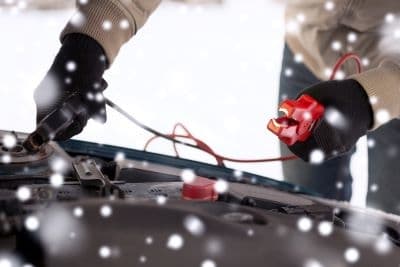Car batteries: Cold weather hints and tips
With the clocks going back this weekend, the nights will be drawing in and the temperatures dropping, now is the time to get that car battery checked. This is especially prudent for those with cars that haven’t moved much throughout the pandemic.

During the winter months, flat batteries are a major reason for roadside assistance call outs in the UK. Not only is this an inconvenience but it is frustrating as in most cases it is completely avoidable.
Here we’ve put together a quick guide to caring for your battery.
Tip 1: Ensure all the electrical appliances are switched off before you start your engine.
Modern living means we have an abundance of electrical gadgets and appliances, most of which we use during our commute each day. The minute we start that engine during the winter months we expect the lights to come on, the heater, the screen de-mister; all the things that enable us to drive comfortably in the cold, dark mornings as well as our usual electrical appliances; radio, sat-nav, phone charger etc which put enormous demands on your battery.
Tip 2: Store your car in the garage
if possible limit the battery’s exposure to the lower temperatures by storing the car in a garage. This is not to say that all cars stored outside in the winter months will result in a flat battery, this is just a preventative measure which can be put in place if parking your car in a garage is possible. Alternatively use can purchase a thermal battery case online for around £10.00.
The colder temperatures can cause battery failure as they reduce your battery’s ability to hold a charge.
Tip 3: Book your car in for an interim service, full service or a simple FREE battery health check for peace of mind.
Regular vehicle servicing can help minimise the risk of battery failure. Potential problems can be identified during regular, routine checks. At National we will check the general condition of your battery, looking for signs of corrosion, specifically on the terminals as well as the voltage output and the charging rates of the battery.
Battery voltage should measure around 12.72V when new, if when testing, the battery measures anything under 12.4V then a replacement battery will be needed.
The start capacity expressed as a % of the cold start current will be checked, anything under 75% indicates deterioration that may in turn indicate a replacement is going to be needed.
Tip 4: Drive your car for approximately 45 minutes at around 70 miles per hour to re-charge the battery.
This year in particular cars have been stood for long periods or taken out for much shorter journeys as we have been discouraged from commuting. Unfortunately, this can negatively impact your cars battery. Batteries need to be used to enable them to re-charge. Quick, short journeys are not enough to fully re-charge a battery.
Following these hints and tips should help keep your battery going throughout the winter months. If in doubt, here at National we can carry our battery checks and provide a full battery replacement service which includes the free disposal of your used battery.
Did you enjoy this blog post? |5 people found this review helpful



 Sign up for SPECIAL OFFERS
Sign up for SPECIAL OFFERS
